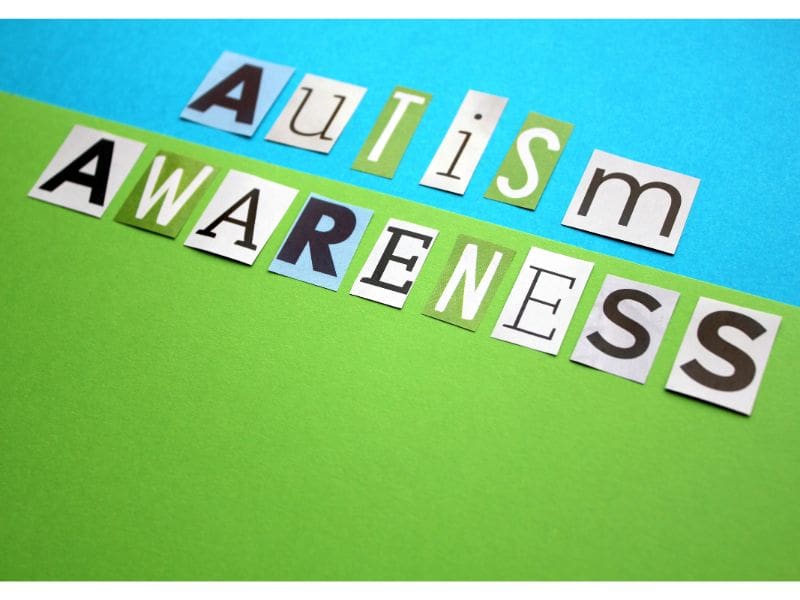How Young Adults Workers With Autism Can Transform Business:
Arshad Bahl came to the U.S. from India when he was eighteen years old, carrying two suitcases and a thousand dollars in his pocket. In the years that followed, he made his way into the corporate world of marketing strategy and consulting, never imagining that one day he would become a “maker” in the world of retail. As the founder and CEO of Amrita Health Foods, based in Bridgeport CT, he now enjoys the physical labor of manufacturing a line of plant-based snacks that were created to heal his young son.
You May Also Like:
9 Super Cognitive Supplements To Make You Smarter And Sharper
Melatonin Hangover And Other Dangerous Melatonin Side Effects

A father’s story
Bahl didn’t know the word autism until his son Ayan was two years old. He and his wife did know that their child wasn’t talking, and soon learned that their son was one of 35 million people worldwide affected by a condition known as Autism Spectrum Disorder (ASD).
The diagnosis was devastating. In addition to profound neurological challenges, Ayan faced a lifetime of stigma and isolation. Those with ASD are often stereotyped as less intelligent, even though some are gifted with extraordinary talents for math, music, or languages. They can also be subject to bullying and rejection from social groups.
In addition, autism puts tremendous stress on families. Parents of autistic children face of host of negative emotions as they struggle to understand their child’s often volatile behavior. Guilt, fear, exhaustion, shame and depression are common, and coupled with economic strain, lead to an increased risk of divorce.
Like 80% of boys with autism, Ayan also had major gastro-intestinal problems. Intensive testing included use of a PillCam – a plastic capsule the size of a vitamin that is swallowed, with a tiny camera inside that captures close-up photos of the gut. The imaging revealed major lesions throughout the boy’s digestive tract. Making matters worse — like other children challenged by ASD, Ayan’s slow speech development made it harder to know if food was causing his symptoms, or if his problems stemmed from an underlying medical condition.
Bahl had heard that a change in nutrition might help his son, but there was no concrete evidence for what was called a low inflammation diet. Doctors said that steroids were another option, but fearful of their side effects, Bahl instead embarked on the complex task of changing what his child ate.

The struggle to feed an autistic son
Food is a complicated issue for children on the autism spectrum. They can be extraordinarily sensitive not just to the taste, but to the color and smell of foods, and they may reject fruits and vegetables because of strong flavors and textures. Speech delays can make it hard for autistic kids to describe what they like or dislike about certain foods, and their intense preferences for carbohydrates, fats, and processed food, along with a powerful need for repetition in their meals may lead to what Bahl calls a “brown diet” of nuggets, fries, and other poor nutritional choices.
Already on a plant-based diet himself, Bahl slowly transitioned his son to dairy- and gluten-free foods, relying heavily on fruit, and introducing Ayan to tofu and tempeh; the results were dramatic. Within a year, Ayan’s gut had healed. Without the constant distraction of GI problems, the family could now concentrate on therapies to improve Ayan’s social skills, speech, and cognitive development.

Handfuls of inspiration
Along the way, Bahl discovered that kneading dough with his son was an activity that improved Ayan’s sensory processing skills. Both children and adults with ASD have difficulty regulating their responses to sensory information, and they may find some sensory inputs overwhelming, or not even notice certain sensory information at all.
Learning and behavioral problems can result, but sensory play can mitigate these effects. When a child engages in sensory play, brain stimulation creates more neural pathways, which can aid in learning and cognition. These activities can also help children with autism modulate their responses to sensory stimulation, which in turn boosts self-control.
In Bahl’s case, kneading dough into cookie shapes benefitted both father and son. At first, Bahl simply threw away the dough when they were finished kneading it, but he soon found a way to put it to good use. Mixing dates, dried fruit, and sunflower seeds, he created an edible dough that he and his son could both knead and eat. From the very beginning, it was a hit.
“He loved it. It was nutritionally very dense, so it was the perfect match for a young kid. He needed something that was high calorie, tasted good, and was something he could participate in making, so we were putting these items in a bowl, mashing them with our hands, and using little cookie cutter cut-outs.”
A chance meeting at the farmer’s market
The next stop was a local farmer’s market, where four-year-old Ayan could practice making eye contact. They brought their cookies along, and before long, met a very special customer who happened to be walking through the market: a regional buyer for Whole Foods, who asked them to participate in a local store. Knowing nothing about the retail business, Bahl quit his job as an IBM executive in 2012 and spent the next year making the product in his basement.
Adding brown rice protein powder, chia seed, hemp, and pumpkin seeds to the mix, Bahl now had the beginnings of a brand – high protein, plant-based paleo snacks that were free of the top nine allergens. In addition to protein bars, Amrita Health Foods now sells breakfast products, granola, and pantry items through Amazon, Walmart, and its website.
Role models of social responsibility
Growing his company, Bahl found inspiration in other socially responsible businesses. Those included yogurt maker Chobani, which gives scholarships to students from farming families, works to end hunger, and supports strong child nutrition legislation that bans lunch shaming.
Clothing manufacturer Patagonia also provided a role model for Bahl. The company gives 1% of its sales to environmental not-for-profits and engages in efforts to teach customers how to repair and recycle more of their clothing. In 2018, the company officially changed its mission statement to “We’re In Business to Save Our Home Planet,” calling it “the new flavor of capitalism.”
Perhaps the best-known exemplar of socially responsible business is iconic ice cream maker Ben and Jerry’s. Beginning in the early ‘80s, the company articulated the idea that businesses should give back to their communities. What Ben Cohen originally called “Caring Capitalism” is now translated into one of its founding principles, known as linked prosperity – the idea that those who are successful should work to improve the world around them.
The Triple Bottom Line
Like any business owner, Bahl hopes to maximize profits from his enterprise – but his definition of profit follows what is known in corporate responsibility circles as the “Triple Bottom Line” — People, Planet, and Prosperity. In addition to making sure that production respects the environment, and that Amrita products meet the needs of customers, the Triple Bottom Line ensures that the company’s social mission takes equal priority to profits. In concrete terms, this means that Bahl has committed to in giving back to the autism community by providing employment to young adults with special needs. In doing so, he provides much-needed opportunities.
“Lots of kids that didn’t have full recovery that went into adulthood with developmental disabilities, couldn’t get corporate jobs” he says, “but they had tremendous skills, so I really wanted to employ people with developmental disabilities because the unemployment rate for people with developmental disabilities is two to three times what it is for the general population.”

The autism spectrum in the workplace
According to the Centers for Disease Control, one in four Americans have a disability that impacts their life activities, creating a robust potential workforce that nonetheless remains unemployed or underemployed. Continuing stigma and unconscious bias accounts for much of the issue, but so does a kind of invisibility. Even among socially responsible corporations, diversity initiatives tend to focus exclusively on race and gender equality, leaving people with disabilities out of the conversation.
Becoming visible
Employers may also have reservations about the potential cost of accommodations, but according to the Job Accommodation Network, these average only $500 per worker. These costs are often eclipsed by the myriad benefits brought to the table by employees with disabilities, including improvements to the traditional bottom line. A study by Accenture and the American Association of People with Disabilities found that businesses actively seeking to employ people with disabilities reported a 28% increase in revenues and 30% higher profit margins. Financial incentives in the form of state and federal tax deductions also sweeten the pot.
In addition, disabled workers reduce both absenteeism and turnover, and they provide marked increases in productivity. A case in point: The Autism at Work program at JPMorgan Chase found that, as a whole, their 300 neurodiverse employees work 48% faster and are 92% more productive than neurotypical employees. Arshad Bahl has found similar gains in his company:
“At least in my factory, people with developmental disabilities are some of the best performing people and the most loyal, so there’s no downside from an efficiency perspective, and the upside is that you’re giving them a tremendous amount of confidence in their life; you’re giving them a livelihood.”
A growing number of companies are beginning to welcome workers from the autism spectrum into their ranks. Some of the best employers for people with autism, according to the Applied Behavior Analysis Programs Guide, include AMC Theaters, CVS Caremark, Ford Motor Company, Google, Microsoft, PepsiCo, Target, Walgreens, and Walmart. Analysts also say representation in the workplace has the potential to greatly expand the consumer market of those with ASD and other disabilities.
As the market for “clean” food continues to grow, so too do the offerings from Amrita Health Foods. High Protein Bars and Superfood Energy Bars range in variety from dark chocolate quinoa to sunflower butter and jelly, all with no added sugars and free from eggs, nuts, dairy, soy, gluten, and GMOs. Paleo Bites and Keto Granola are now also joined by newer Protein Oats, with 15 grams of protein and 6 grams of fiber in flavors such as blueberry hemp and chocolate coconut.
As for the triple bottom line — Arshad Bahl is joining spectrum-friendly companies with the hope that his mission will provide a direct appeal to his customers “You can do socially responsible things with your plate choice and snack choice, and let us help you do that.”
And as young adults on the autism spectrum work alongside him at his bakery, customers have a chance to hold in their hands a product made by someone who really needs the job.


